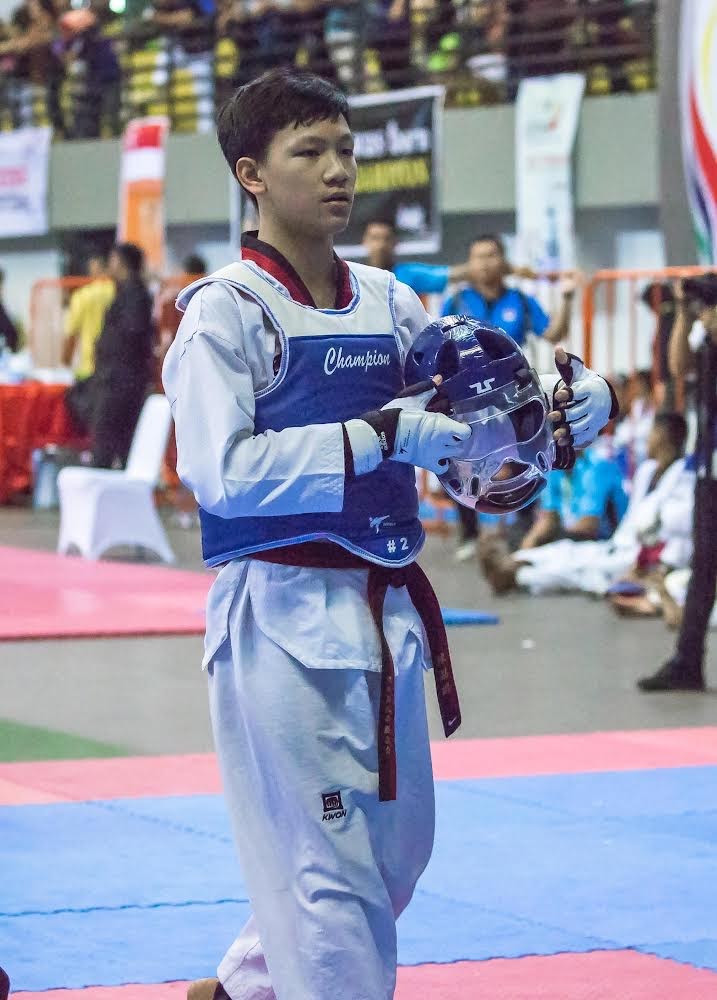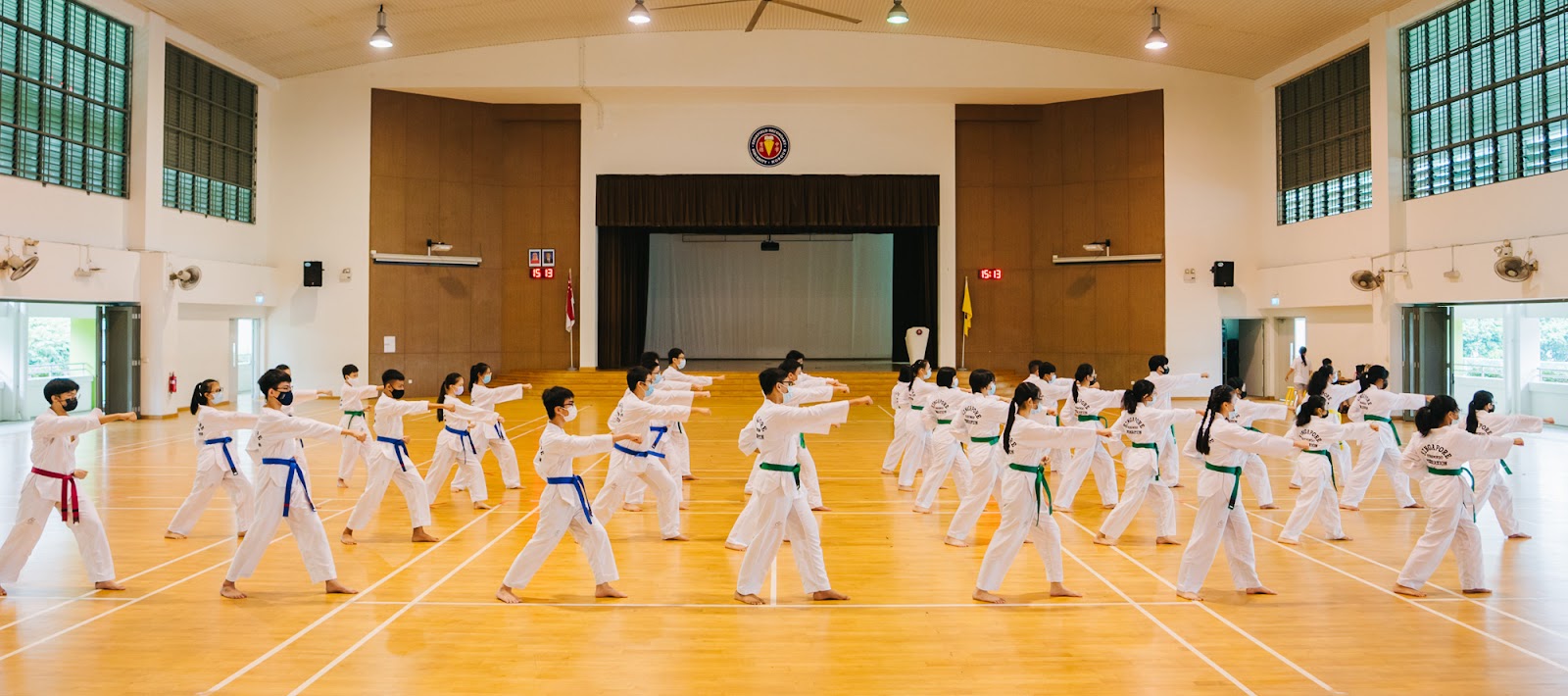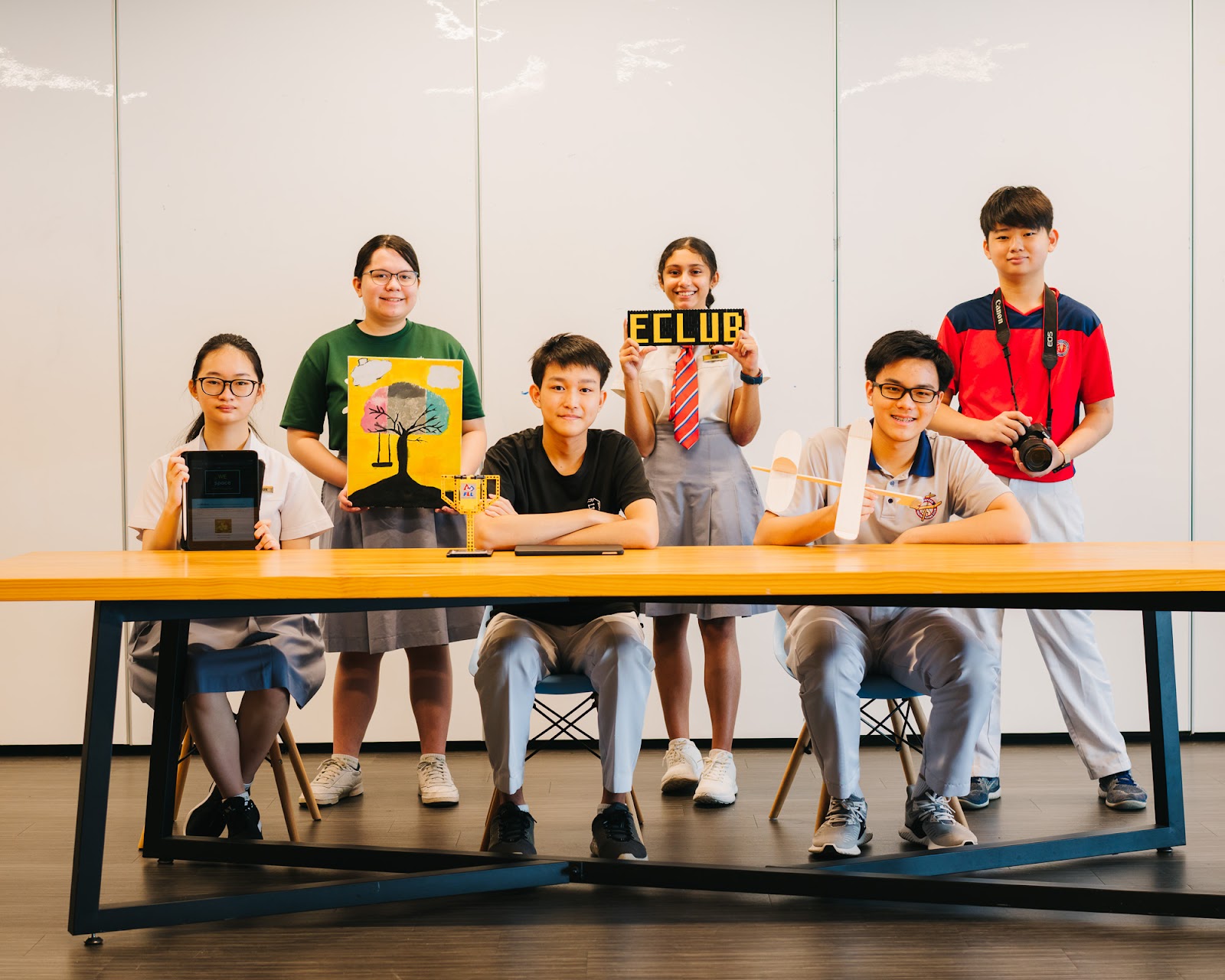At Edgefield, everyone is a student of Taekwondo. Learning the sport has reaped multiple benefits – both tangible and intangible - for the individual student.
Imagine taking a weekly hour-long Taekwondo lesson not because it is a co-curricular activity (CCA), but because it is a lesson scheduled as part of the school’s curriculum.
This is what every student experiences, for at least the first two years of their school life at Edgefield Secondary School.
The school’s signature Learning for Life Programme (LFLP) is Character Education based on a Taekwondo-infused curriculum. The objectives of the programme, which was implemented in 2011, are three-fold: to develop the love for life-long learning, values and character building through sports, to inculcate values of resilience, respect and the attitude to pursue excellence, as well as to nurture confidence and compassion.
“Edgefield is the only school to weave Taekwondo into its school curriculum. The weekly lessons are conducted by instructors from Singapore Taekwondo Federation, where students learn key technical skills of Taekwondo and the history of Taekwondo,” said Mr Jeffrey Nah, the teacher-in-charge of the LLP.
Students’ initial views
Some students viewed the compulsory Taekwondo classes with skepticism initially.
“I initially thought that the Taekwondo lessons would be nothing more than an enhanced PE lesson,” Yee Ngai Fong from 2EH.
As with all martial arts, the act of bowing is customary towards instructors and classmates alike. It signifies respect for others, but also for oneself. The custom takes some getting used to but becomes second nature after several lessons.
“After several lessons, I realised Taekwondo is not just about physical ability but also teaches us values, such as diligence, respect and resilience,” Ngai Fong said.
“Diligence is necessary in the sport. We have to remember to bring our dobok and dress properly for lessons. And we also need to be diligent in learning our patterns.”
Black Belt goals made possible
At the end of each term, a grading test the students are assessed by external examiners. With three grading sessions a year, some students become “double promotees” more than once.
Ching Kay Yee 2EV is a 3-time double promote and attained the Blue Belt while classmate Chia Yi Xin Joy-Anna is a 2-time double promote and attained Green-Blue Belt.
For students who continue to learn Taekwondo after Secondary 2, many are able to attain the Black Belt within four years.
Lim Li Ting attained the Black Belt in Secondary 3. “I’ve grown a lot during the 3 years [in Taekwondo]. I’ve learnt to respect coaches, teachers and friends, to be resilient and put in my best effort in everything I do.
Li Ting had no prior background in Taekwondo before Secondary 1.
“Earning the Black Belt is really a huge accomplishment for me – it means a lot!”
Providing a supportive environment for national athletes
With every student being a Taekwondo practitioner, it means that any student can represent the school in Taekwondo competitions. The Taekwondo culture was part of the reason why Regan Chin, Sportsboy of the Year 2020, chose to attend Edgefield Secondary School. Regan was also awarded the Singapore Schools Sports Council Best Sportsboy in 2020 at the 50th Singapore Schools Sports Council School Colours Awards.
“[The award] was a surprise as there are a lot of other sports persons who are doing well. My family was quite shocked,” Regan said about his greatest sports achievement to date.
“Edgefield actively supported me as an athlete, always makes sure I excel academically and in Taekwondo,” Regan said. Training five times a week, he’s become accustomed to bring his schoolwork along to training, and doing it before or after training.
Regan took up Taekwondo at the age of 5, and is currently ranked 4th Poom going on to 1st Dan. A Poom belt symbolises an interim period a student has to go through when they are below the age of 15 years old.
“My parents didn’t think I would take Taekwondo so seriously, to be honest! Even my older sister joined TKD two years after me and she represented Singapore in 2019 SEA Games,” said Regan, who prefers sparring to poomsae.
The self-professed Lee Dae Hoon fan also studied Latin dance in primary school but decided to focus on Taekwondo. “When I watch his matches, he always seems to be able to score despite being stuck in situations. I admire his strategy.”
It is the values of Taekwondo that keeps him going even when he loses matches, like when he lost out to a National-level athlete in 2018.
“It’s important to have perseverance and determination. These character traits will help me achieve goals in Taekwondo and elsewhere.”
Describing the tension in reconciling the values of respect and the need to confront his opponent, he said, “Confrontation is not always a bad thing. For example, it could means having the courage to tell someone that they are wrong, but also respecting them.” It is this courage that he applies to his sport, while having a healthy respect for his Taekwondo friends.
He also feels Taekwondo teaches one how to exercise patience, more so than other forms of martial arts. “Some of our poomsae patterns are actually meant to be executed slowly. If you do it too quickly, it’s wrong.”
Although an experienced Taekwondo practitioner, Regan still went through the same Secondary 1-2 LFLP and represents the school for all inter-school competitions, competing alongside his schoolmates.
“My goal is to get to the Olympics. My next milestone is to get a gold medal in an international
competition!”




